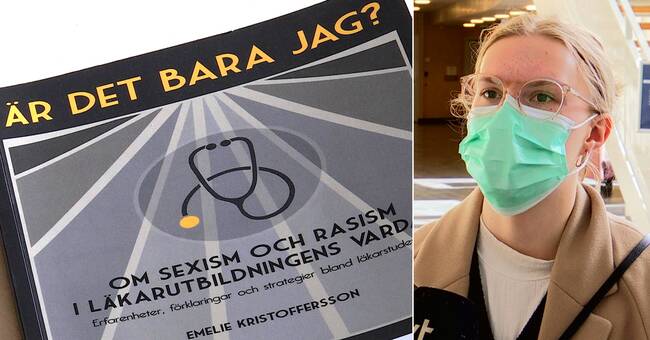In the dissertation "Is it just me?"
reveals how women and minority students repeatedly encounter stereotypical perceptions, discriminatory treatment and condescending jargon from supervisors, staff, patients and fellow students.
This is how a female medical student tells about an event from her practice:
"Inside the doctor's office, the male chief physician listed his favorites among the younger AT doctors: 'Helena is the smartest, but Anna is the prettiest - so she's my favorite.'"
- The image of Sweden as equal makes it difficult to identify discrimination.
Sexism and racism are often seen as intentional acts committed by immoral individuals.
A well-educated person, such as a supervisor who does not define himself as misogynistic or racist, is not considered to be able to act sexist or racist.
This focus on the individual's intentions hides the structural nature of discrimination, says medical student Emelie Kristoffersson who wrote the dissertation.
Foreign-born women extra vulnerable
Many of the interviewees describe conflicting feelings about their experiences.
Many experienced racism and sexism in certain situations, but at the same time also that the education was largely characterized by gender equality and equality.
Medical students with a non-European background sometimes feel doubly vulnerable.
The dissertation contains several examples of teachers, doctors and patients expressing themselves in a prejudiced or racist manner.
Emelie Kristoffersson believes that the results show a need to provide students, supervisors and teachers with a theoretical understanding of structural and everyday sexism and racism, and encourage them to critically self-reflect on their role in maintaining these power relations.
- It is important to depart from the view of sexism and racism as something that is only practiced by a few individuals.
Instead, such discrimination should be considered as something that is recreated by all of us - consciously and unconsciously, says Emelie Kristoffersson.
Magnus Hultdin, program director of medical education, welcomes the dissertation.
- It is our task to ensure that things like this are not repeated, he says.
In the clip above, you hear more about the dissertation "Is it just me?" but also about experiences from the medical student Ebba who is in her third year of the medical program.
Direct report · Do you have experience of sexism or racism in your education?
Post
Javascript needs to be enabled in your browser for this instant report to be updated automatically.
8 apr14.41
A new dissertation describes how racism and sexism exist both below and above the surface of the medical program at Umeå University.
The dissertation contains several examples where teachers, doctors and patients have expressed prejudice or racism.
Do you have experience of sexism or racism in your education?
Share in our chat.
It's good to be anonymous.
Remember not to point out specific people, educations or universities. Such posts are edited or deleted.
SVT · Madeleine Harrati

